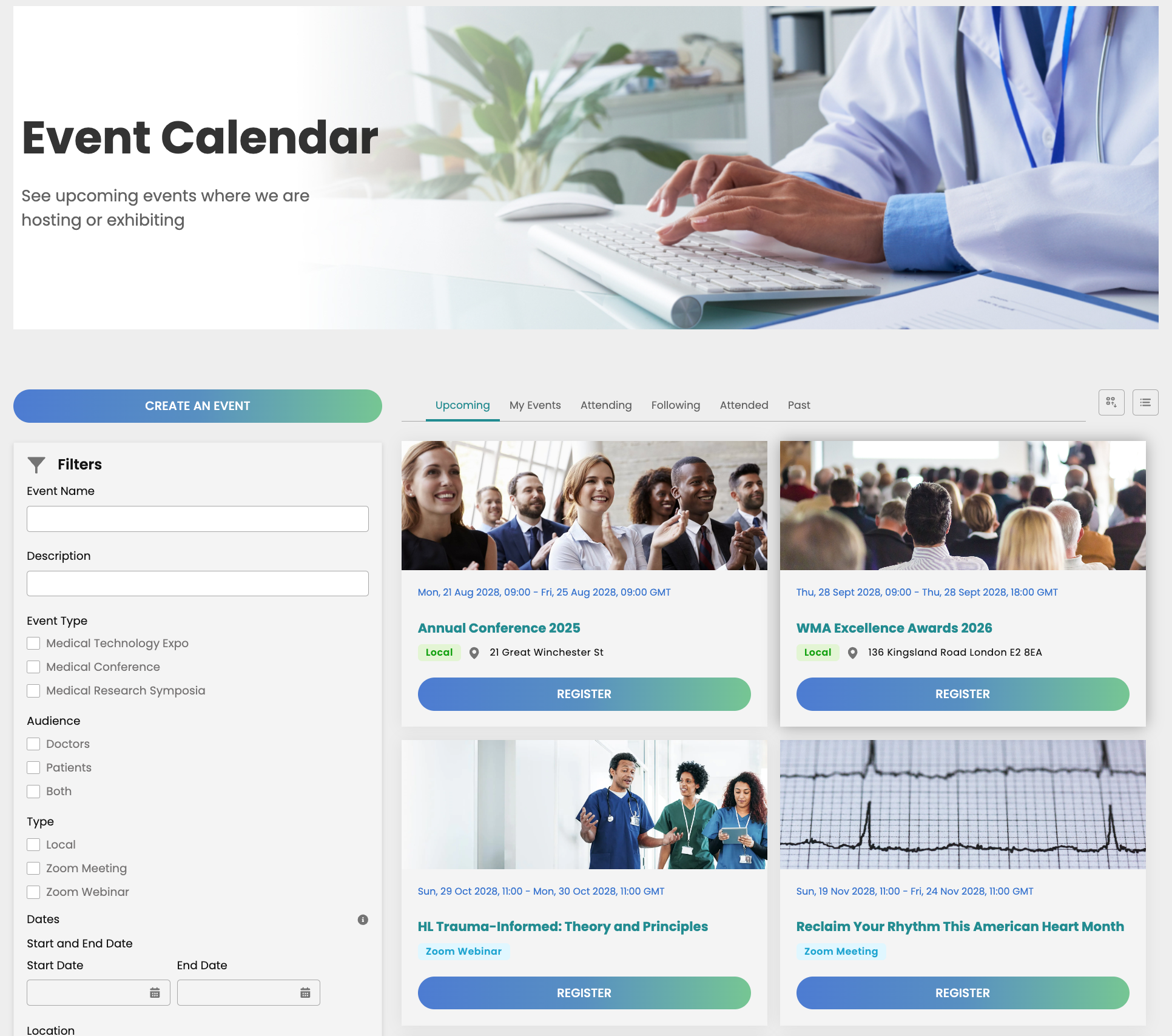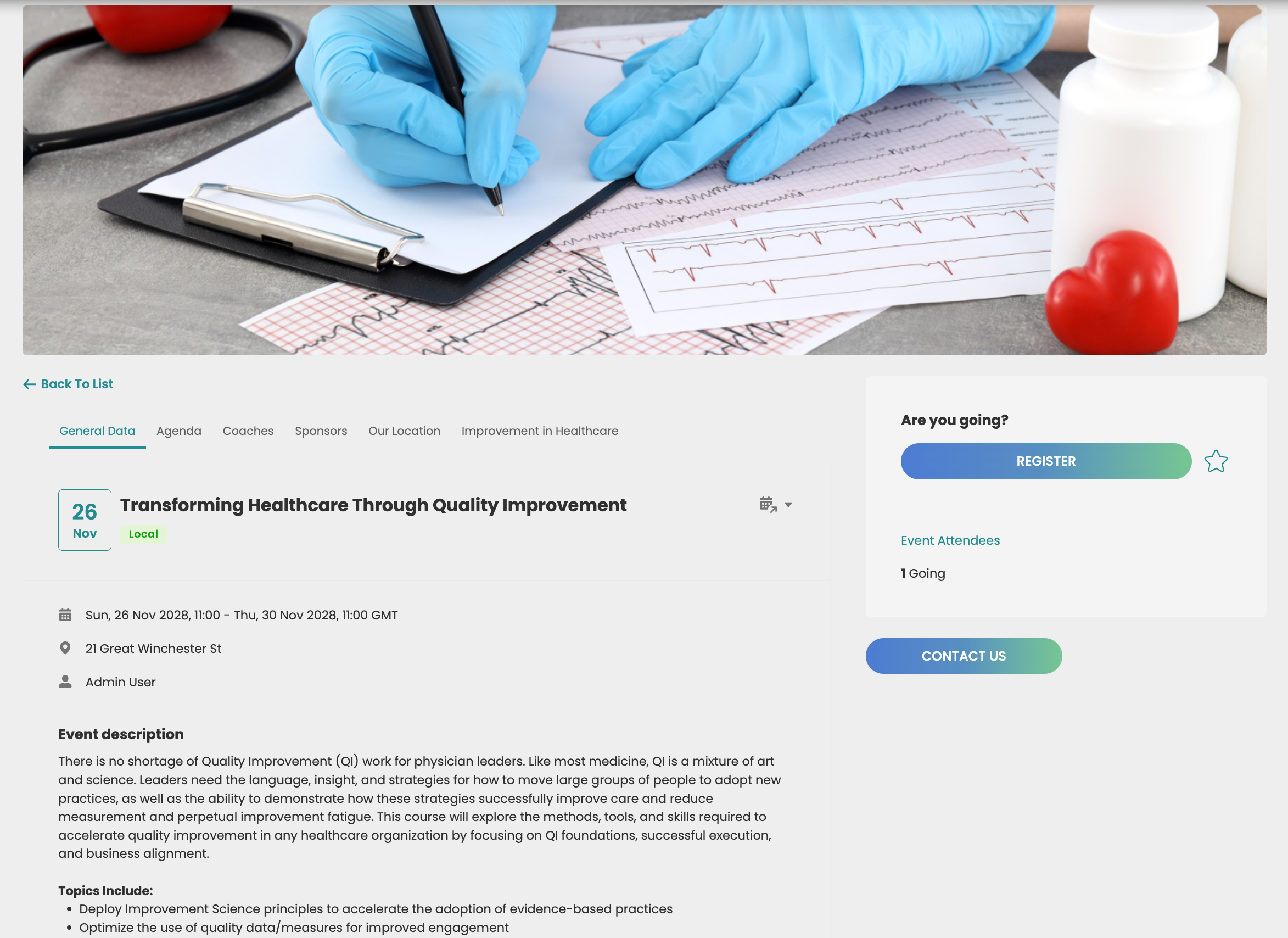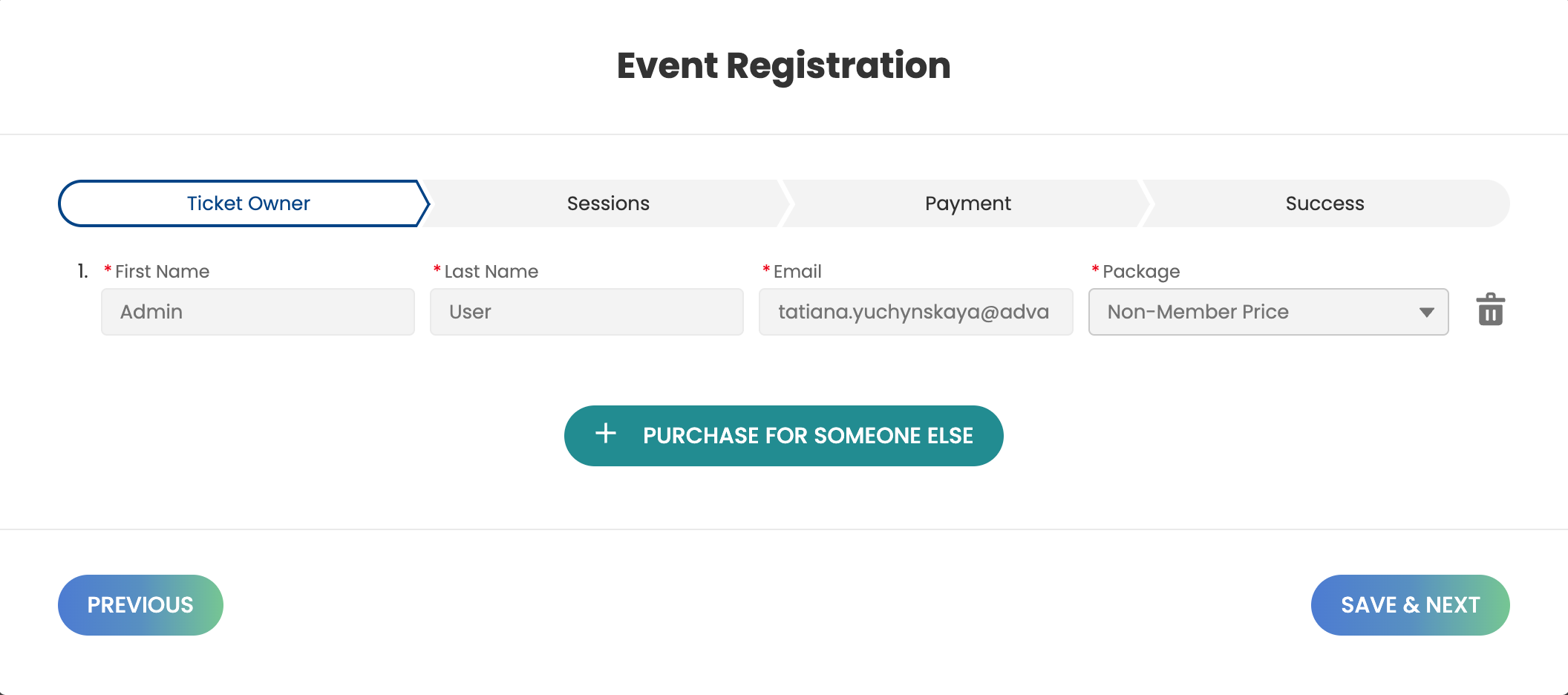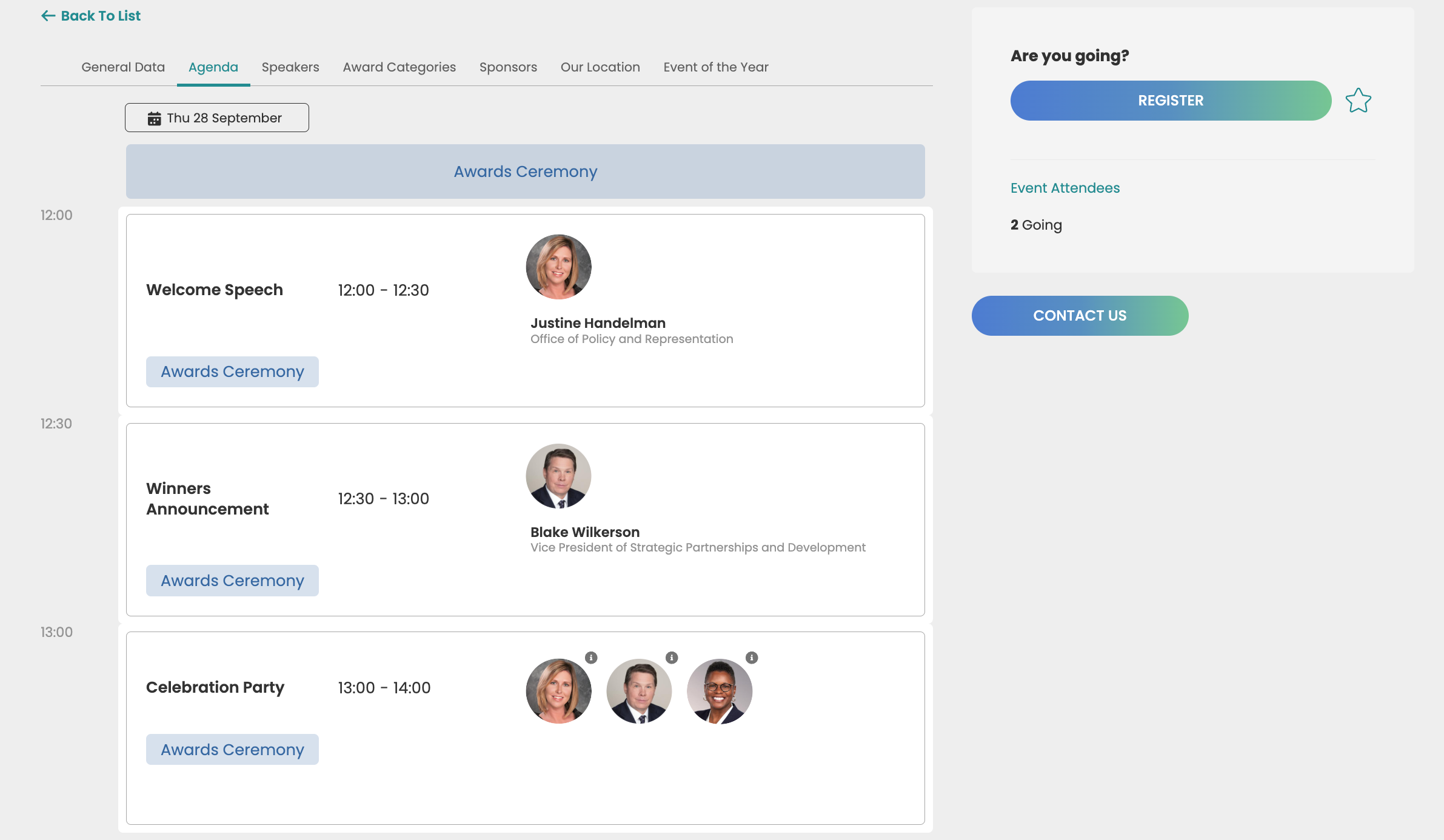Conference Management in Salesforce
Managing conferences—whether in-person, hybrid, or virtual—requires a strong strategy, seamless coordination, and advanced technology. Successful conference management involves organizing multiple elements, including conference attendees, keynote speakers, sponsors, logistics, schedules, registrations, and post-event analytics. The right conference management tool ensures streamlined conference coordination while providing a flawless experience for all participants.
Salesforce, as a leading customer relationship management (CRM) platform, provides organizations with the tools to manage various business processes, including conference planning. However, choosing the best conference event management tool that integrates smoothly with Salesforce is crucial for efficiency. The right platform acts like a great add-on tool, enhancing and broadening Salesforce’s out-of-the-box functionality by bringing more field-specific instruments
This article explores the key considerations when selecting an event tool for Salesforce, taking into account the specifics of your organization.
Popular Conference Types
Conferences come in various formats, each designed to serve different purposes and audiences. Understanding these types can help event organizers choose the right tools and strategies for effective conference management. Below is a table outlining some of the most common conference types:
| Conference Type | Description |
|---|---|
| Academic Conferences | Gather researchers, scholars, and students to present papers, discuss findings, and network within their field of expertise. Often feature keynote speeches, panel discussions, and research poster sessions. |
| Business Conferences | Focus on industry trends, corporate strategies, and professional networking. May include leadership summits, product launch events, and investor meetings. |
| Trade Shows and Expos | Large-scale events where businesses showcase their products and services. Attract industry professionals, potential clients, and media representatives. |
| Government and Policy Conferences | Facilitate discussions on public policies, governance, and international relations. Government officials, policymakers, and stakeholders gather to address pressing societal issues. |
| Virtual Conferences | Gained popularity due to accessibility and cost-effectiveness. Leverage digital platforms to deliver keynote speeches, breakout sessions, and interactive networking opportunities. |
| Hybrid Conferences | Combine in-person and virtual elements, providing flexibility for attendees to participate either on-site or remotely. Require specialized technology to ensure seamless engagement across both formats |
Why Selecting the Right Conference Management Software Matters
The success of any academic conference, industry summit, or business symposium depends on meticulous conference coordination. Without an efficient system, conference organizer faces numerous challenges, such as:
- Managing complex conference planning workflows
- Handling large numbers of attendees
- Coordinating schedules for keynote speakers
- Overseeing multiple event formats, including virtual conferences
- Analyzing attendee engagement and feedback
Choosing a Salesforce-compatible conference management tool simplifies these processes by centralizing data, automating tasks, and ensuring a seamless attendee experience.

Key Features to Look for in a Salesforce-Based Conference Management Tool
To enhance conference management, organizations should seek an event tool that offers a comprehensive suite of features tailored to their unique demands. These tools should streamline the planning process and facilitate the effectiveness of every stage of the event lifecycle. The right tool should cover all aspects, ensuring that conference organizers can manage everything from conference registration to attendee engagement with ease.
Additionally, the tool should offer robust capabilities for managing both in-person and virtual conferences, allowing for seamless transitions between different event formats. By selecting a tool that integrates well with existing systems, such as Salesforce, organizations can enhance their event management efficiency, ensuring that every conference runs smoothly and delivers a memorable experience for all participants. Here are the key aspects to look for in conference management solutions:
1. Seamless Salesforce Integration
A top-tier conference management tool should integrate seamlessly with Salesforce, ensuring smooth data exchange between the CRM and the event platform. This integration is crucial for event organizers as it allows them to efficiently manage attendee information within Salesforce, track conference attendees’ engagement and participation, and generate real-time reports and analytics. By having this level of integration, organizers can maintain a comprehensive view of all conference-related data, leading to improved decision-making and enhanced attendee experiences.
The ability to access and analyze data in real-time also facilitates more effective conference coordination, enabling organizers to address any issues promptly and ensure that the event runs smoothly. Such an integrated approach simplifies the management process and contributes to a successful event by providing valuable insights into attendee behavior and preferences.
2. Advanced Registration and Ticketing
Efficient registration and ticketing features play a pivotal role in effective conference coordination. A robust conference management software should offer customizable registration forms that cater to the specific needs of each event, allowing organizers to gather essential attendee information seamlessly. The tool should also facilitate tiered ticket pricing, accommodating both general and VIP attendees, which helps maximize revenue and enhance the attendee experience.
Furthermore, incorporating secure payment gateways is crucial for ensuring the safety and security of transactions during paid events. This builds trust with participants and streamlines the registration process, making it hassle-free for both organizers and attendees. By prioritizing these features, conference organizers can ensure a smooth and efficient registration experience, ultimately contributing to the overall success of the event.
Recently, we at Advanced Communities hosted a webinar on how personalization and AI are transforming event management on Salesforce. We invite you to watch the recording to learn how you can personalize attendees’ experiences and explore the numerous capabilities Salesforce Experience Cloud offers for this purpose.
Webinar Recording
How Personalization and AI Are Changing Event Management on Salesforce
3. Speaker and Agenda Management
For event that features multiple speakers, an ideal conference management software should offer robust support for managing speaker-related details. This includes providing comprehensive speaker profiles that highlight session details, ensuring that attendees have access to all necessary information about each speaker’s background and expertise.
Furthermore, the software should facilitate automated agenda updates and notifications, keeping all participants informed of any changes in the schedule. This feature is particularly beneficial for events with multiple session tracks, as it allows for easy scheduling and coordination of these sessions. By offering these capabilities, the conference management tool enhances the overall planning process, ensuring that both organizers and attendees can focus on the content and experience of the event rather than logistical challenges.
4. Virtual and Hybrid Event Capabilities
With the increasing popularity of virtual conferences, it is essential for event tools to offer comprehensive support for such formats. This includes seamless live streaming capabilities and integration with webinar platforms to ensure that all sessions are accessible to remote attendees. Additionally, providing virtual networking opportunities is crucial, allowing participants to connect and interact with one another just as they would at an in-person event.
To enhance the virtual experience, AI-driven features can be incorporated to personalize attendee interactions and suggest relevant sessions or networking opportunities based on participants’ interests and professional backgrounds. Virtual conference management software should support interactive elements like live chat, breakout rooms, and virtual exhibitor booths to replicate the dynamic environment of a physical conference. These features facilitate networking and boost attendee engagement, making the virtual or hybrid event experience as immersive and impactful as possible.
5. Attendee Engagement and Networking
An effective event tool should significantly enhance attendee interaction by incorporating features that foster engagement and networking. Interactive Q&A sessions can be utilized to encourage attendees to actively participate in discussions, allowing them to pose questions and receive real-time responses from speakers or panelists. This not only enriches the learning experience but also makes the sessions more dynamic and interactive.
Additionally, AI-powered matchmaking can be leveraged to facilitate networking by intelligently connecting attendees with similar interests or professional backgrounds, thereby creating meaningful connections and fostering collaboration. To boost engagement, real-time polls and surveys can be integrated throughout the event, enabling organizers to gather instant feedback and insights from participants. This immediate feedback loop helps in tailoring the event to better meet attendee needs and makes participants feel valued and heard.
6. Post-Event Analytics and Reporting
Event organizers must thoroughly evaluate the success of their events by analyzing various metrics and insights. Attendance and engagement reports are crucial in understanding how well the event resonated with the conference attendees, providing a clear picture of participation levels and interaction rates. Additionally, session performance insights offer valuable information on which sessions were most popular and effectively engaged the audience, helping organizers refine future conference programs.
Moreover, implementing automated follow-ups and lead generation strategies is essential for maintaining connections with participants post-event. These strategies help nurture potential leads and ensure that the event’s impact extends beyond its immediate conclusion, contributing to long-term success and relationship-building with attendees.
Why AC Events Enterprise is the Best Choice for Conference Management in Salesforce
Among the various conference management tool options, AC Events Enterprise stands out as a comprehensive solution for conference event management within Salesforce. It suits organizations of different sizes and budgets and offers many customization options. Plus, our amazing UX/UI design team can make your conference landing page and registration look fantastic with modern design and a user-friendly interface. Here are the main benefits you can get with AC Events Enterprise:
Native Salesforce Integration
Unlike standalone event platforms, AC Events Enterprise is designed specifically for Salesforce and Experience Cloud, ensuring a smooth, unified experience. This means organizations can manage attendee records directly within Salesforce, track event performance alongside other business KPIs, and automate workflows using Salesforce’s native automation tools. Furthermore, the ability to automate repetitive tasks through Salesforce’s automation tools reduces manual effort, freeing up valuable time for conference organizers to focus on creating exceptional attendee experiences.

Fully Customizable Registration
With this tool, the registration form becomes endlessly customizable, offering a wide array of options to tailor the registration experience to meet the unique needs of each event. Event organizers can provide different pricing packages for various attendees based on criteria such as membership status, partner level, or whether they are VIP or general attendees. Additionally, the tool allows for differentiation between authenticated and guest users, ensuring that each participant receives a personalized registration experience.
Organizers can customize registration form questions to gather specific information from registrants, facilitating a more targeted approach to attendee engagement. The platform also supports the setup of discounts and promotional offers, enabling organizers to incentivize early registrations or reward loyal attendees. This level of personalization enhances the registration process and contributes to a more streamlined and efficient conference management process.

Speaker and Agenda Management
Our solution provides a comprehensive suite of features to effectively manage conference agendas and speakers, ensuring a seamless and organized event experience. With the ability to create complex agendas, organizers can offer multi-session and multi-track options that cater to diverse attendee interests and preferences. Each session can be detailed with key information, including session topics, times, and locations, allowing participants to easily navigate the conference schedule.
The platform also offers a complete overview of speakers, showcasing their expertise, achievements, and areas of specialization. Attendees can access speaker profiles that include social media links, useful resources, and any other relevant information. AC Events Enterprise empowers users by providing the flexibility to register only for specific sessions they are interested in rather than committing to the entire conference.

Virtual and Hybrid Conference Support
The AC Events Enterprise package is fully equipped for online or hybrid conferences, featuring powerful integrations with Zoom, YouTube, and Vimeo. This comprehensive package allows event organizers to host webinars and meetings effortlessly while streaming live events to remote attendees, ensuring that participants can engage with the content from anywhere in the world. The seamless integration with these popular platforms guarantees high-quality video and audio transmission, enhancing the virtual conference experience. By offering these capabilities, AC Events Enterprise ensures that both in-person and online attendees have access to the same enriching experience, making it a versatile solution for modern conference management.
Detailed Post-Event Reports
Track all information about attendees and their engagement throughout the conference by scanning their QR codes. This technology allows for efficient data collection and real-time monitoring of participant interactions, ensuring that organizers can keep a close eye on attendee movements and preferences. Monitor registration sources using UTM parameters in links, which helps identify the most effective marketing channels and campaigns, thereby optimizing future promotional strategies.
Leverage campaigns to track attendees, ensuring that every touchpoint is accounted for, and maintain communication with them after the conference concludes through personalized follow-ups and targeted engagement campaigns. Analyze this data by building comprehensive reports and dashboards, which provide a visual representation of the event’s performance metrics, such as attendance rates, session popularity, and attendee satisfaction. By measuring the success of your conference through these detailed insights, you can identify areas for improvement and implement strategies to enhance future events.

Final Thoughts
In conclusion, selecting the right tool is essential for ensuring the seamless execution of any event, whether in-person, virtual, or hybrid. From attendee registration to post-event analytics, a well-chosen conference management solution simplifies complex tasks, enhances the attendee experience, and provides valuable insights for future events.
By considering factors such as integration with Salesforce, ease of registration, speaker and agenda management, and support for both virtual and hybrid formats, organizations can choose the tool that best fits their needs. The right conference management software empowers event organizers to coordinate efficiently, improve engagement, and drive better outcomes for every type of conference. AC Events Enterprise, for instance, provides an excellent example of how a native Salesforce solution can enhance event management, offering comprehensive features that cater to diverse event formats and provide deep insights for continuous improvement.
Investing in the right tool not only simplifies event planning but also elevates the overall conference experience, ensuring that both organizers and attendees benefit from a well-executed and memorable event.
FAQ
What is the meaning of conference management?
Conference management refers to the process of planning, organizing, and executing conferences, whether in-person, virtual, or hybrid. It involves handling logistics such as attendee registration, speaker coordination, scheduling, venue management, and post-event evaluation.
What is the role of a conference manager?
A conference manager is responsible for overseeing all aspects of conference planning and a conference program, ensuring smooth execution. Their role includes coordinating with speakers, managing attendee experiences, handling registrations and ticketing, ensuring technical support, and analyzing event success through post-event reports.
What is a conference management tool?
A conference management tool is software designed to facilitate the planning and execution of conferences. It provides features such as attendee registration, agenda scheduling, speaker management, virtual event capabilities, engagement tools, and data analytics. When integrated with platforms like Salesforce, it enhances efficiency and centralizes event data for better decision-making.
What are the benefits of using conference management solutions?
Software simplifies many aspects of event planning and execution, helping organizers run events more efficiently. One of the main advantages is the streamlined registration process. By automating attendee registration, payment processing, and confirmation emails, the software reduces the administrative workload and minimizes errors.
Additionally, it makes agenda planning more efficient. The software enables easy creation and management of event schedules, allowing both organizers and attendees to access up-to-date information in real time. Communication is another key area where conference management software excels. It provides tools for sending targeted messages to attendees, speakers, and sponsors, ensuring timely and relevant updates are shared with the right people.





